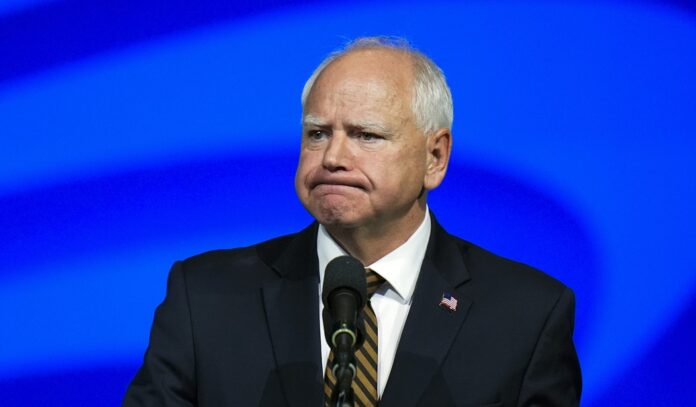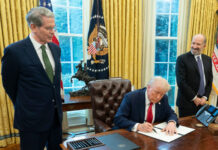The Harris/Walz campaign may be running on an extreme anti-gun platform, but it’s also running from the positions the candidates staked out just a few years ago. Kamala Harris has supposedly reversed course on her self-proclaimed “good idea” to require a compensated confiscation of so-called assault weapons, and now claims to support the Second Amendment even though she argued that the Supreme Court should have upheld D.C.’s ban on handguns back in 2008.
Tim Walz, on the other hand, is running away from his record as a pro-2A congressman who earned the endorsement of the NRA. As the New York Times reports, while Walz touts his shift as a change of heart that came after the murders at Marjory Stoneman Douglas High School in Parkland, Florida six years ago, his embrace of an anti-gun ideology coincided with his first campaign for statewide office.
There is no doubt that after he won the governorship, Mr. Walz, a hunter and a veteran, enacted stronger state gun laws, including expanding background checks to include private sales of firearms and allowing the police to temporarily take guns from people deemed dangerous. Today, he is viewed as a model for Democratic politicians seeking to balance Second Amendment rights and public safety. And his N.R.A. report card now contains straight F’s.
But how he got there was messy. He was dogged throughout the 2018 race by attacks on his pro-gun record in Congress, and then by accusations that he had flip-flopped to win the left-leaning Democratic-Farmer-Labor Party’s nomination.
At times, Mr. Walz appeared to acknowledge that campaign realities, and the larger office he was seeking, had at least something to do with his transformation.
In announcing his support for an assault weapon ban after the Parkland shootings, he told The Star Tribune: “I’m not just asking to be the congressman from the First Congressional District. I’m looking at a broader state with broader issues, broader population densities, and I think as a legislator I’ve been proud to say if the facts dispute our ideology, change the ideology.”
So what facts disputed his pro-gun ideology? Walz claims it was Parkland, but as the New York Times pointed out, Walz didn’t back an “assault weapons” ban after Sandy Hook. Of course, at the time he was a blue dog Democrat in Congress. Was it the fact that he was running for governor that led to him changing his ideology on the right to keep and bear arms?
As Mr. Walz sought to rebut charges that he had only recently altered his views out of political expediency, he pointed to procedural votes he had taken in Congress in 2015 and 2016. They were less significant than he implied. Virtually all of them were party-line roll calls to allow debate on gun controls, not votes on the underlying bills. These parliamentary maneuvers had no chance of succeeding in the Republican-controlled House, but they would allow Democrats to accuse the G.O.P. of blocking politically popular proposals.
That is why advocates on both sides of the gun issue gave them no credence at the time. Bryan Strawser, chairman of the Minnesota Gun Owners Caucus, said procedural votes that went nowhere did not matter.
“I would see these votes and his mention of them when he ran for governor as an attempt to rewrite the script and position himself in the best possible light for his new political ambitions,” Mr. Strawser said, adding that Mr. Walz had “always voted to support gun rights” until it no longer suited him.
Rachael Joseph, a gun control activist who founded a group called Survivors Lead, said she was glad Mr. Walz shifted his stance when he did. But gun violence had been an obvious problem long before he ran for governor, she said, and “he just wasn’t there.”
The Harris/Walz campaign declined to comment to the New York Times, which is par for the course. Both candidates have been loathe to speak to the press and face even semi-tough questions about their “evolving” positions on gun control. But as the Times report indicates, Walz’s “evolution” on guns went hand in hand with his effort to win his gubernatorial campaign.
What does Walz really think about the Second Amendment and the right to keep and bear arms? Honestly, I don’t think it really matters. Walz himself has said he’s willing to change his ideology to better fit in with the Democratic base, and that makes him a loyal foot soldier in a party that marches in lockstep with gun control groups like Everytown, Giffords, and Brady in attacking and eroding our right to keep and bear arms.




